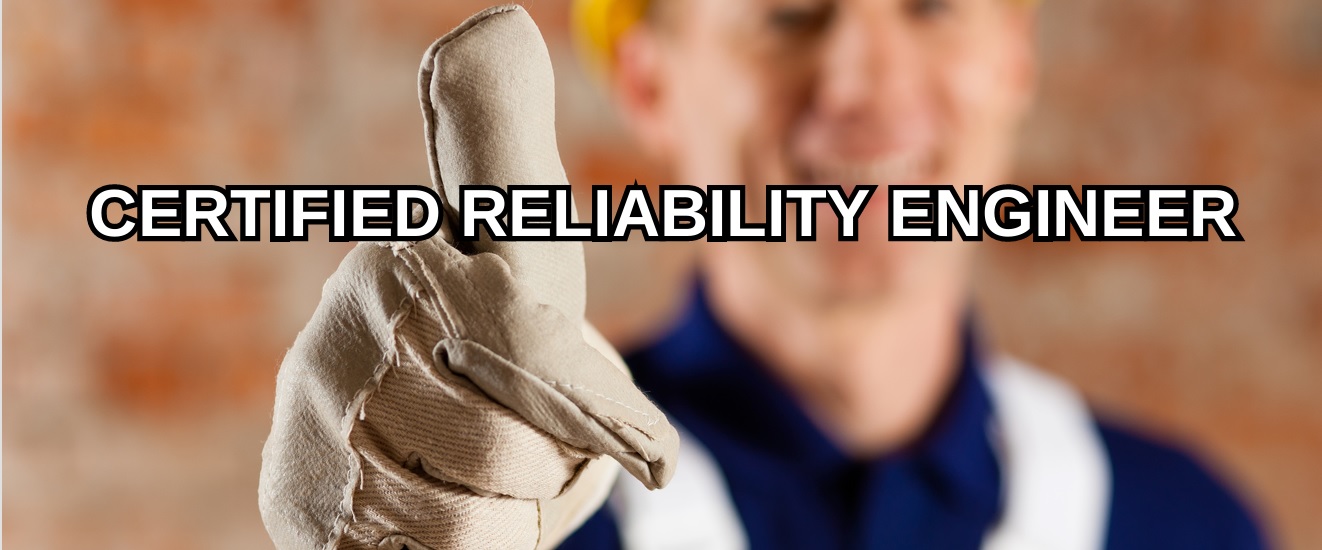
ASQ - CRE (Certified Reliability Engineer) Training Course
Based on ASQ-CRE Body of Knowledge
Session Details
USD 6,000.00
excl. VATOverview
Reliability is a cornerstone of any maintenance process. Get it right and you can enjoy good safety performance, low running costs and a sustainably high production level at the right quality. Reliable plants are usually safer and cite a higher level of morale. Lose control of reliability and operations become less predictable, more chaotic and much more difficult to control. This is a highly practical course that includes the latest thinking in reliability improvement, how to gain maximum benefit for minimum effort and how to develop bespoke reliability strategies that will integrate effectively with other campaigns. This will include methods and tools as well as the Carcharodon Model of Excellence to add structure and enable participants to break this complex subject into smaller, more understandable parts. Reliability is not the responsibility of maintenance alone and outstanding performance can only be achieved with a strategy that includes operations, design, materials and contractors. This course is based upon our Model of Excellence for bringing all these considerations together as one to achieve pace-setter standards.
Learning Objectives
Explain how pace-setters achieve outstanding reliability performance and how to use the Carcharodon Model of Excellence Develop reliability programs that align with the unique needs of their business, asset and maintenance strategies Analyze their current performance against best-in-class benchmarks Calculate potential fixed and variable cost reductions along with productivity, output, and product quality improvements, that can be delivered through reliability improvement Apply key reliability improvement methodologies and tools to improve reliability performance Explain to colleagues the fundamentals of best practice in reliability, including the responsibilities of design and operations as well as maintenance Engage colleagues and consider the human factors required to support a high reliability culture
WHO SHOULD ATTEND?
Reliability Engineers
Quality Engineers & Managers
Design and Development Engineers
Maintenance & Asset Management
Professionals preparing for the ASQ CRE exam
COURSE METHADOLOGY
BK Management Team believe that learning is not only about acquiring technical skills, but also about learning behaviors & Competencies that are desirable for work in plant operation & maintenance critical dimensions. Our holistic teaching develops our delegates' personal effectiveness to function both as an individual and as a team player. The course delivery & modes of instruction will incorporate theory , practical skills and Q&A sessions. To enhance learning outcomes, theory sessions will comprise classroom based lecture that will intersperse with interactive discussions, scenario-based, case-study, group exercises, video clips, power point slides, learners' Guide and the application of various tools which will be provided to help in the delegates and participants of the learning’s objectives. With successful implementation of the learnt skills they are bound to enhance Individual & Organizational growth. For online / Interactive Virtual sessions, Delegate should have a stable & good Internet connection on his Laptop.
Course Outline
Reliability Management
Roles and responsibilities of a Reliability Engineer
Reliability program planning and implementation
Reliability policy and mission statements
Life-cycle costing and risk-based decision-making
Organizational structure and integration of reliability functions
Reliability-centered maintenance (RCM) and total productive maintenance (TPM)
Probability and Statistics for Reliability
Basic statistics: mean, median, mode, standard deviation
Probability rules and distributions:
Binomial, Poisson, Normal, Exponential, Weibull
Statistical inference and hypothesis testing
Confidence intervals
Regression analysis and correlation
Sample size determination
Reliability in Design and Development
Reliability design principles (Design for Reliability – DfR)
Fault Tree Analysis (FTA)
Failure Modes and Effects Analysis (FMEA)
Reliability allocation and prediction (MIL-HDBK-217, Telcordia)
System reliability modeling (block diagrams, RBDs)
Redundancy and reliability optimization
Robust design (Taguchi methods)
Reliability Modeling and Predictions
Reliability functions: R(t), F(t), h(t)
Mean Time Between Failures (MTBF), MTTF, and MTTR
Reliability block diagrams (RBDs)
Series, parallel, k-out-of-n systems
Bayesian reliability analysis
Load-strength and stress-strength models
Reliability Testing
Test planning and strategy
Accelerated Life Testing (ALT)
Environmental and HALT/HASS testing
Demonstration testing (Sequential, Binomial, and OC curves)
Qualification and acceptance testing
Reliability growth models (Duane, AMSAA)
Data acquisition and failure reporting
Maintainability and Availability
Maintainability prediction and metrics (MTTR, MMH/repair)
Availability types: inherent, operational, achieved
Maintenance strategies: preventive, predictive, and corrective
Maintainability Design (DfM) principles
Maintainability testing and analysis
Data Analysis and Modeling
Life data analysis and distributions
Nonparametric and parametric analysis
Weibull analysis (using probability plots and software)
Repairable systems modeling (Crow/AMSAA, NHPP)
Censored and truncated data
Warranty and field data analysis
Risk Management
Risk identification and assessment tools
Risk Priority Number (RPN) and criticality analysis
Hazard analysis and safety assessments (HAZOP, HAZID)
Integration with ISO 31000 and ISO 14971
Decision analysis under uncertainty
Cost-risk-benefit analysis
Software Reliability (Optional/Advanced)
Software failure modes and metrics (e.g., failure rate, fault density)
Software reliability models (Musa, Goel-Okumoto)
Test coverage and defect tracking
Software verification and validation
IEEE/IEC software standards
Exam Preparation & Mock Review
ASQ CRE exam structure and tips
Solving typical exam questions and case studies
Time management and test-taking strategies
Mock test with review and discussion
Session Details
USD 6,000.00
excl. VATDo you have any questions ?
Jubail Industrial City, Saudi Arabia
373 road 112, First Industrial Area, Unit No.: 1 Al Jubail 35717 - 7043 KSA
Explore
About
© 2026 BK Consultancy & Training
All rights reserved.